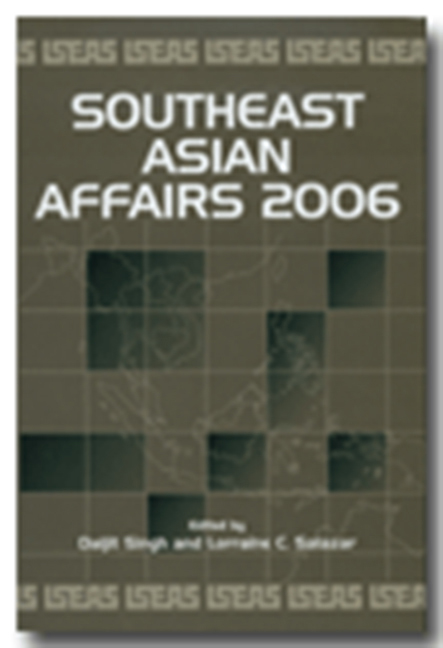Cambodia: Positioning for 2008
from Cambodia
Published online by Cambridge University Press: 21 October 2015
Summary
There is truly never a dull day in Cambodia and 2005 was no exception. What started off as an uncertain year ended much better than expected, but only to subsequently witness renewed excitement and condemnation of the government for the detention of some high-profile political activists towards the end of the year and in early January 2006.
Truly, too, some things hardly ever change. In contemporary Cambodian politics any issue is fair game for both the opposition and the government — as one tries to make the country ungovernable while the other tries to make its adversary impotent. The country's friends and detractors alike assess the post-conflict Cambodian political culture as not having yet imbibed Western concepts of power sharing, loyal opposition, and open dissent. Politicking, it would appear, is both in the blood and in the roots of the hairs of Cambodian politicians who practise it with great enthusiasm and blatant impunity.
The Economy in 2005
Interestingly enough, Cambodia has managed to record a fairly impressive economic growth rate the past few years. In 2005 the economy grew more than 6 per cent. While this was less than the 7 per cent of 2004, it exceeded World Bank projections three times over. The garment industry continued to spearhead growth, followed by the tourism and construction sectors. Nonetheless, Cambodia remains one of the poorest countries in the world with a per capita income of only US$320.
The growth was due, in no small measure, to increasingly prudent fiscal policies and to overall sustained political stability. In this context, in late December 2005, the Royal Cambodian Government (RCG) was delighted with the announcement of the International Monetary Fund (IMF) that it would grant Phnom Penh a 100 per cent debt relief, amounting to approximately US$82 million — the amount that Cambodia had amassed before 1 January 2005.
The cherry on the cake of the announcement was the IMF observation that Cambodia, one of a handful of countries to be thus rewarded, had qualified for the debt relief because “of its overall satisfactory recent macroeconomic performance, progress in poverty reduction, and improvements in public expenditure management”.
- Type
- Chapter
- Information
- Southeast Asian Affairs 2006 , pp. 73 - 90Publisher: ISEAS–Yusof Ishak InstitutePrint publication year: 2006

